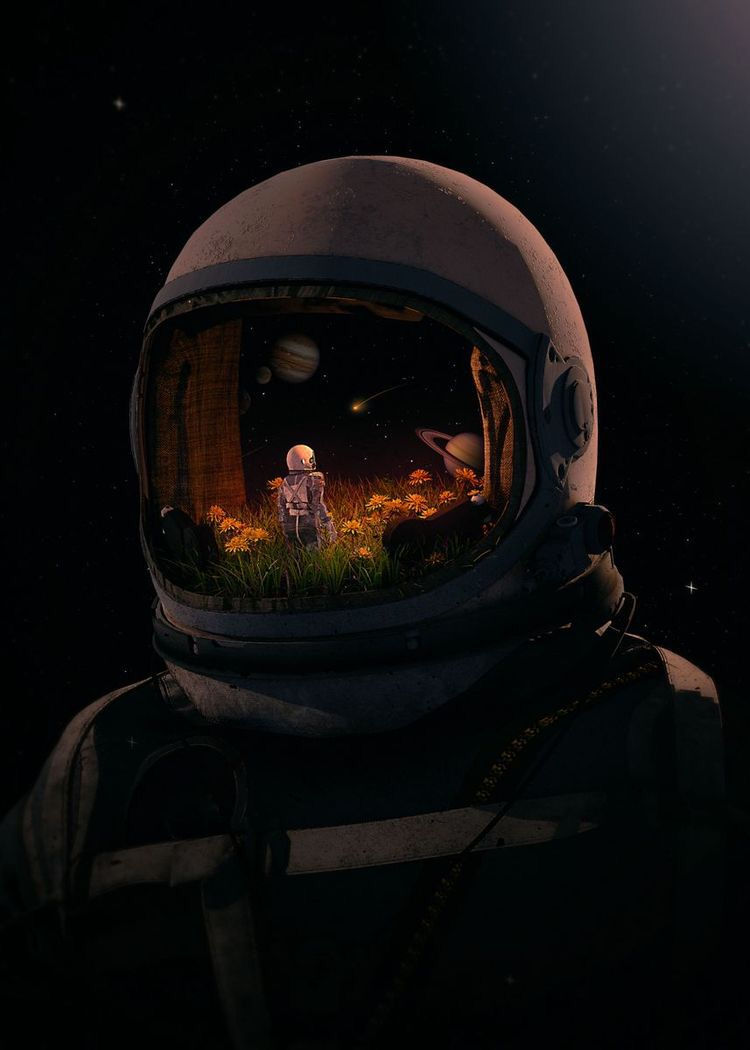Space colonialism: The future of humanity?
- Eureka WSRC
- Sep 21, 2021
- 5 min read
Updated: Sep 23, 2021
In 1955, two nations began racing to space, developing incredible technology at a fast pace and changing the field of aerospace engineering forever. They made history with their aerospace capabilities, with their unmanned space probes, artificial satellites and human space flight. Almost seventy years later, a new space race is upon us, with several nations and even private aerospace companies racing towards space colonialism. Constructing permanent human settlements in space could potentially be crucial to the survival of human civilization; crises that plague the earth, like overpopulation, starvation and lack of resources, could no longer be an issue.
Hopes of a new civilization beyond the earth have been around for long, with John Wilkins suggesting a moon colony in his book ‘Discourse Concerning a New Planet’ in the early 17th century. It has also been a common theme in science fiction, with the earliest known book about a space colony being ‘The Brick Moon’ written by Edward Everett Hale in 1897, about a human colony on an artificial satellite. Konstantin Tsiolkovsky, a Russian-Soviet rocket scientist who is considered one of the pioneers of astronautic theory, also theorized the possibility of a space colony in his book ‘Beyond Planet Earth’ in 1900 where he suggested the possibility of maintaining life in space using plants and building greenhouses in space. Konstantin Tsiolkovsky believed that space colonization could bring upon peace to the human race and help perfect our world.

With recent discoveries, the possible locations of space colonies have been expanding, such as the discovery of water on the surface of titan by the Cassini–Huygens that marked it as one of the possibly inhabitable locations. However, for centuries research on space colonization have centred around the colonization of the moon, this is mainly a result of its proximity to earth, and it’s comparatively low escape velocity. Furthermore, the abundance of ice in certain areas on the moon’s surface in several locations provides a means of a water supply, and the lunar lave tubes could potentially protect humans from space radiation and meteoroids. On the other hand, the low surface gravity on the moon has raised concerns on whether it can maintain human health for long.
During the 20th century, the focus of the research on space colonization has been shifting from the moon to Mars, due to its more habitable conditions. A day on Mars is around 24 hours, while a day on the moon lasts almost 28 earth days, which would be difficult to adjust to. Additionally, as a result of its lack of atmosphere, the temperature on the moon drastically changes throughout the day, with the night being too cold and the morning being too hot. Moreover, there is a high possibility of the existence of water all over the surface of Mars, while the Moon only has surfaces of water closer to the poles. Mars also has a stronger gravitational field than the Moon and an atmosphere, which makes it much more suitable for colonization. Though, there has been recent interest in setting up a moon base as an intermediate to Mars colonization. In December 2020, Elon Musk, CEO of SpaceX, stated that he is “highly confident” that by 2026, SpaceX will be able to land humans on Mars, which is a significant step towards the colonization of Mars.
Space colonization is considered, by many scientists, one of the few ways for the long-term survival of the human civilizations. In the event of a human-made or a natural disaster on Earth, having a space colony guarantees our survival. In 2001, theoretical physicist and cosmologist Stephen Hawking predicted the extinction of humanity within the next thousand years, if space colonies were not established. Furthermore, in 2005, Michael Griffin, a NASA Administrator, stated that the ultimate goal of spaceflight programs are space colonization, saying “The goal isn't just scientific exploration ... it's also about extending the range of human habitat out from Earth into the solar system as we go forward in time ... In the long run, a single-planet species will not survive ... If we humans want to survive for hundreds of thousands of millions of years, we must ultimately populate other planets.”
Additionally, there are abundant resources in space that could be available to us without difficulty, including both energy and materials. Researches have revealed that the Solar System alone could potentially have enough resources to sustain anywhere from a thousand times to over a billion times our current human population. Another key aspect to space colonization is asteroid mining, asteroids carry water and materials that can aid us in creating many essential equipment for space travel. Mining and fuel stations could be build on asteroids to remove the need for constant resupplying from earth. NASA believes that with the use of propellants derived from asteroids while exploring the moon, they could save over $100 billion dollars. Furthermore, one of the main benefits that can arise with space colonization is a solution to two of the main current world issues, overpopulation and resource depletion. Building settlements in outer space, will provide us with easier access to extraterrestrial resources which would provide us with more than enough resources for everyone, potentially decreasing starvation, unemployment and homelessness as well.
While there may be countless benefits to space colonization, like any other technological and scientific development, it doesn’t come without its drawbacks and difficulties. Despite the recent technological advancement that decreased the costs of building rockets and exploring space, in order to colonize space, it would take a lot more research and resources which is extremely expensive. Moreover, with our current technology, attempts at space colonization is very dangerous, a journey to Mars is very likely to be a one way journey. Putting all that aside, if we were to establish a settlement in space, deciding who regulates and governs would be really difficult and could cause a lot of conflict.
We might still be many years away from colonizing space, and a lot of obstacles might currently face us, but we are in an era of exponential development; our technological developments have never advanced as quickly as they currently are before. It is very possible that we are able to establish space settlements in the near future and achieve things we never thought we could.
Lujain Elmallah
________________________________________________________________________________
"Space Colonization". NASA, 2021, https://www.nasa.gov/centers/hq/library/find/bibliographies/space_colonization
"Titan | Science – NASA Solar System Exploration". NASA Solar System Exploration, 2021, https://solarsystem.nasa.gov/missions/cassini/science/titan/
"Spacex". Spacex, 2021, https://www.spacex.com/human-spaceflight/mars/
"Moon Village: Humanity's First Step Toward A Lunar Colony?". Astronomy.Com, 2021, https://astronomy.com/news/2019/05/moon-village-humanitys-first-step-toward-a-lunar-colony
"Reconsidering The Foundations Of Human Spaceflight In The 1950S". Roger Launius's Blog, 2021, https://launiusr.wordpress.com/2011/06/08/reconsidering-the-foundations-of-human-spaceflight-in-the-1950s/
"Moon Hole Might Be Suitable For Colony - CNN.Com". Edition.Cnn.Com, 2021, http://edition.cnn.com/2010/TECH/space/01/01/moon.lava.hole/
"Solar System Exploration Augmented By In-Situ Resource Utilization: Human Mercury And Saturn Exploration | 8Th Symposium On Space Resource Utilization". AIAA Scitech Forum, 2021, https://arc.aiaa.org/doi/10.2514/6.2015-1654
2021, https://ntrs.nasa.gov/citations/20030063128 Accessed 17 Sept 2021
Elliott, ByAnnabel et al. "Colonies In Space May Be Only Hope, Says Hawking". The Telegraph, 2021, https://www.telegraph.co.uk/news/uknews/1359562/Colonies-in-space-may-be-only-hope-says-Hawking.html
"The Space Settlement Institute". Space-Settlement-Institute.Org, 2021, http://www.space-settlement-institute.org/meaning.html
"The Problem With Today's Ideas About Space Exploration - Worth". Worth, 2021, https://www.worth.com/is-space-the-next-frontier-for-the-same-old-story-of-imperialism







Comments